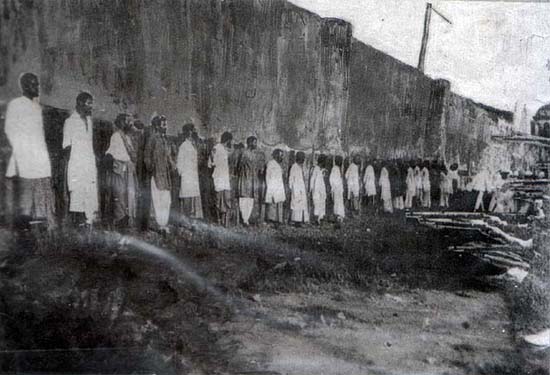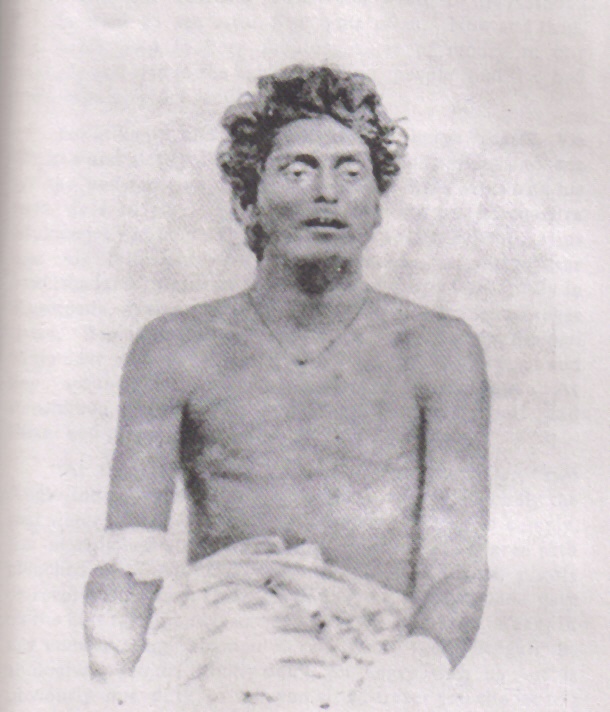|
Narendra Mohan Sen
Narendra Mohan Sen (1887–1963) was an Indian freedom fighter and revolutionary involved with Anushilan Samiti. Short biography Narendra joined the revolutionary outfit that was known as Anushilan Samiti. He played a major role in unifying Jugantar, led by Jadugopal Mukherjee and Anushilan Samiti Anushilan Samiti ( bn, অনুশীলন সমিতি, , bodybuilding society) was an Indian fitness club, which was actually used as an underground society for anti-British revolutionaries. In the first quarter of the 20th century it su ... in the 1920s, after both parties suffered major setback because most of their senior leaders were arrested. References Anushilan Samiti 1887 births 1963 deaths Revolutionary movement for Indian independence Indian revolutionaries {{India-activist-stub ... [...More Info...] [...Related Items...] OR: [Wikipedia] [Google] [Baidu] |
Indian Independence Movement
The Indian independence movement was a series of historic events with the ultimate aim of ending British Raj, British rule in India. It lasted from 1857 to 1947. The first nationalistic revolutionary movement for Indian independence emerged from Bengal. It later took root in the newly formed Indian National Congress with prominent moderate leaders seeking the right to appear for Indian Civil Service (British India), Indian Civil Service examinations in British India, as well as more economic rights for natives. The first half of the 20th century saw a more radical approach towards self-rule by the Lal Bal Pal, Lal Bal Pal triumvirate, Aurobindo Ghosh and V. O. Chidambaram Pillai. The final stages of the independence struggle from the 1920s was characterized by Congress' adoption of Mahatma Gandhi's policy of non-violence and Salt March, civil disobedience. Intellectuals such as Rabindranath Tagore, Subramania Bharati, and Bankim Chandra Chattopadhyay spread patriotic awarenes ... [...More Info...] [...Related Items...] OR: [Wikipedia] [Google] [Baidu] |
Revolutionary Movement For Indian Independence
The Revolutionary movement for Indian Independence was the part of the Indian independence movement comprising the actions of violent underground revolutionary factions. Groups believing in armed revolution against the ruling British fall into this category, as opposed to the generally peaceful civil disobedience movement spearheaded by Mohandas Karamchand Gandhi. The revolutionary groups were mainly concentrated in Bengal, Maharashtra, Bihar, the United Provinces and Punjab. More groups were scattered across India. Beginnings Apart from a few stray incidents, the armed rebellion against the British rulers was not organised before the beginning of the 20th century. The revolutionary philosophies and movement made its presence felt during 1905 partition of Bengal. Arguably, the initial steps to organise the revolutionaries were taken by Aurobindo Ghosh, his brother Barin Ghosh, Bhupendranath Datta, Lal Bal Pal and Subodh Chandra Mullick, when they formed the Jugantar party in A ... [...More Info...] [...Related Items...] OR: [Wikipedia] [Google] [Baidu] |
Anushilan Samiti
Anushilan Samiti ( bn, অনুশীলন সমিতি, , bodybuilding society) was an Indian fitness club, which was actually used as an underground society for anti-British revolutionaries. In the first quarter of the 20th century it supported revolutionary violence as the means for ending British rule in India. The organisation arose from a conglomeration of local youth groups and gyms (akhara) in Bengal in 1902. It had two prominent, somewhat independent, arms in East and West Bengal, Dhaka Anushilan Samiti (centred in Dhaka), and the Jugantar group (centred in Calcutta). From its foundation to its dissolution during the 1930s, the Samiti challenged British rule in India by engaging in militant nationalism, including bombings, assassinations, and politically motivated violence. The Samiti collaborated with other revolutionary organisations in India and abroad. It was led by the nationalists Aurobindo Ghosh and his brother Barindra Ghosh, influenced by philosophies ... [...More Info...] [...Related Items...] OR: [Wikipedia] [Google] [Baidu] |
Jugantar
Jugantar or Yugantar ( bn, যুগান্তর ''Jugantor''; lit. ''New Era'' or ''Transition of an Epoch'') was one of the two main secret revolutionary trends operating in Bengal for Indian independence. This association, like Anushilan Samiti, started in the guise of suburban fitness club. Several Jugantar members were arrested, hanged, or deported for life to the Cellular Jail in Andaman and many of them joined the Communist Consolidation in the Cellular Jail. Notable members * Abinash Chandra Bhattacharya (1882-1962) * Basanta Kumar Biswas (1895-1915) * Khudiram Bose * Satyendranath Bosu (1882-1908) * Prafulla Chaki * Ambika Chakrobarty (1891-1962) * Amarendra Chatterjee (1880-1957) * Taraknath Das (1884-1958) * Tarakeswar Dastidar * Bhupendra Kumar Datta (1894-1979) * Kanailal Dutta (1888-1908) * Ullaskar Dutta * Bipin Behari Ganguli (1887-1954) * Santi Ghose (1916-1989) * Surendra Mohan Ghose alias Madhu Ghosh (1893-1976) * Barin Ghosh * Ganesh Ghosh (b. 19 ... [...More Info...] [...Related Items...] OR: [Wikipedia] [Google] [Baidu] |
Jadugopal Mukherjee
Jadu Gopal Mukherjee (18 September 1886 – 30 August 1976) was a Bengali Indian revolutionary who, as the successor of Jatindranath Mukherjee or Bagha Jatin, led the Jugantar members to recognise and accept Gandhi's movement as the culmination of their own aspiration. Early life Jadugopal or Jadu was born at Tamluk in the district of Medinipur on the bank of the Rupnarayan River in West Bengal, where his father Kishorilal practised law and distinguished himself as a Kheyal singer. The family came from Beniatola in north Kolkata. Jadu's mother Bhubanmohini hailed from a Vaishnava family and transmitted in her children a spirit of devotion. Jadu's younger brother was to settle in the US and to be known in the West the famous writer and cultural scholar Dhan Gopal Mukerji. As an upper class student of the Duff School in Kolkata, Jadu learnt to think patriotically, thanks to one of his teachers. He became a member of the Kolkata Anushilan Party in 1905, attracted by its physica ... [...More Info...] [...Related Items...] OR: [Wikipedia] [Google] [Baidu] |
1887 Births
Events January–March * January 11 – Louis Pasteur's anti-rabies treatment is defended in the Académie Nationale de Médecine, by Dr. Joseph Grancher. * January 20 ** The United States Senate allows the Navy to lease Pearl Harbor as a naval base. ** British emigrant ship ''Kapunda'' sinks after a collision off the coast of Brazil, killing 303 with only 16 survivors. * January 21 ** The Amateur Athletic Union (AAU) is formed in the United States. ** Brisbane receives a one-day rainfall of (a record for any Australian capital city). * January 24 – Battle of Dogali: Abyssinian troops defeat the Italians. * January 28 ** In a snowstorm at Fort Keogh, Montana, the largest snowflakes on record are reported. They are wide and thick. ** Construction work begins on the foundations of the Eiffel Tower in Paris, France. * February 2 – The first Groundhog Day is observed in Punxsutawney, Pennsylvania. * February 4 – The Interstate Commerce Act ... [...More Info...] [...Related Items...] OR: [Wikipedia] [Google] [Baidu] |
1963 Deaths
Events January * January 1 – Bogle–Chandler case: Commonwealth Scientific and Industrial Research Organisation scientist Dr. Gilbert Bogle and Mrs. Margaret Chandler are found dead (presumed poisoned), in bushland near the Lane Cove River, Sydney, Australia. * January 2 – Vietnam War – Battle of Ap Bac: The Viet Cong win their first major victory. * January 9 – A total penumbral lunar eclipse is visible in the Americas, Europe, Africa, and Asia, and is the 56th lunar eclipse of Lunar Saros 114. Gamma has a value of −1.01282. It occurs on the night between Wednesday, January 9 and Thursday, January 10, 1963. * January 13 – 1963 Togolese coup d'état: A military coup in Togo results in the installation of coup leader Emmanuel Bodjollé as president. * January 17 – A last quarter moon occurs between the penumbral lunar eclipse and the annular solar eclipse, only 12 hours, 29 minutes after apogee. * January 19 – Soviet spy Gheorghe ... [...More Info...] [...Related Items...] OR: [Wikipedia] [Google] [Baidu] |




